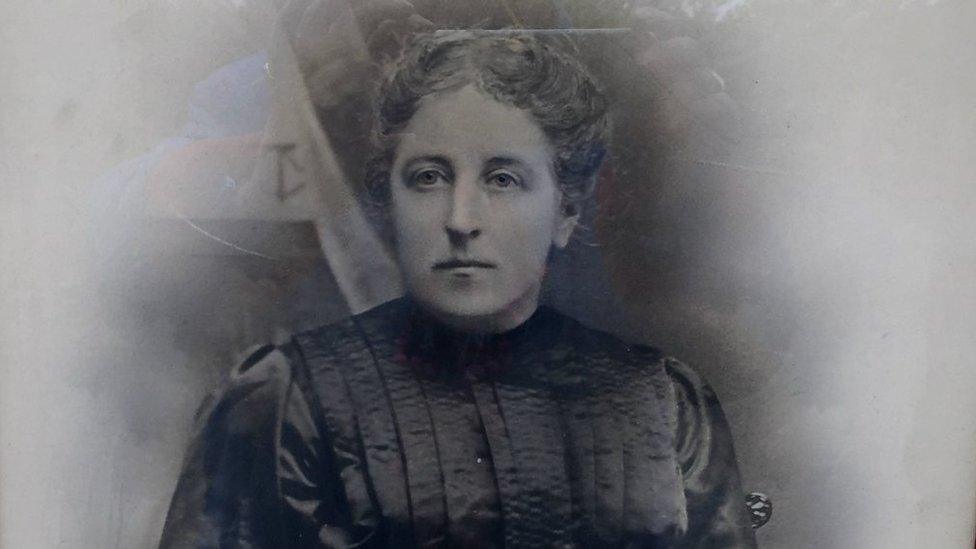Derry's factory girls: 'A window into the adult world'
- Published
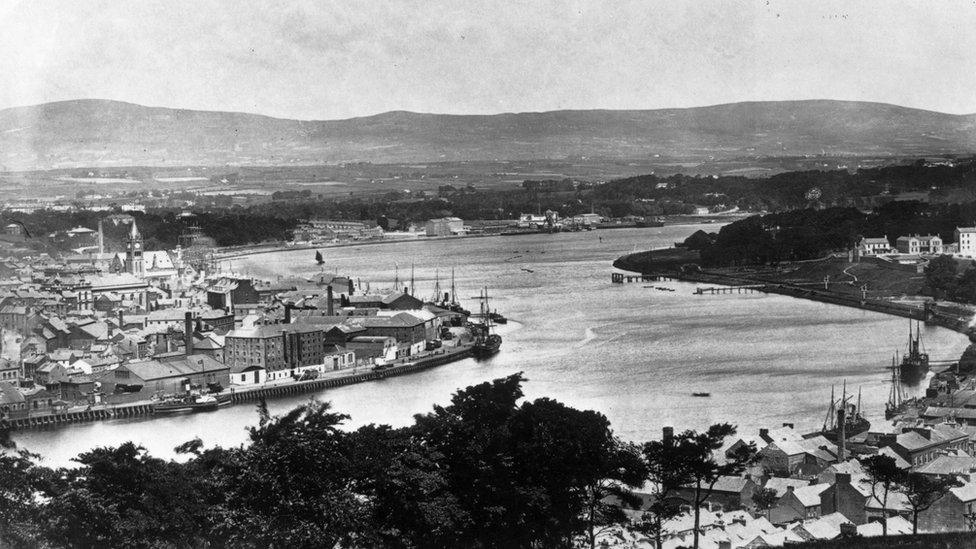
At the turn of the 20th Century Derry was home to many shirt factories
Loud and clear, the sound of whirring horns bounced off the city's walls, warning its inhabitants that it was time to get to work.
The Londonderry skyline was dominated by uniform red brick buildings and the streets bustled with the sights and sounds of industry.
Home to 44 shirt factories, Derry was a world leader in shirt production and the city's factory girls were the driving force.
Their story is one of friendship, feminism and resilience.
Decades ahead of their time, most of the 18,000 people employed in the shirt factories were women, their days spent sewing and their nights dancing.
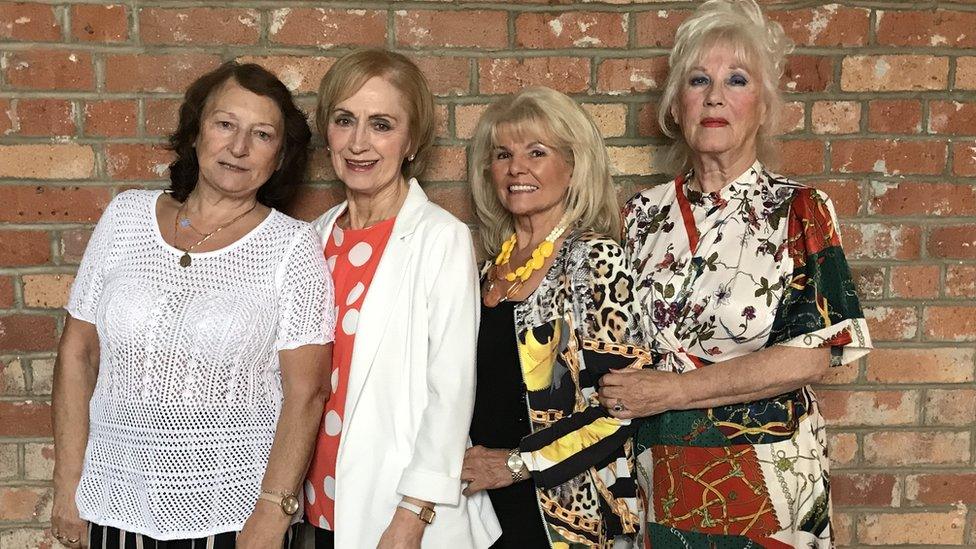
Anne Lavery, Mary Doherty, Mary White and Irene McCarron all worked in Derry's shirt factories
One woman who lived her life by the shirt factory horn was Anne Lavery.
Just 15 years old when she started in Hogg and Mitchell's, she said the women working there welcomed her as they would their own daughter.
"Sometimes you go into a place, and you think, 'this is it, this is where I'm meant to be'," she said.
"We'll never forget the work that we did, the friends we made and the joy we had.
"We were factory girls and that was a gift, there will never be factory girls again, not the way we were."
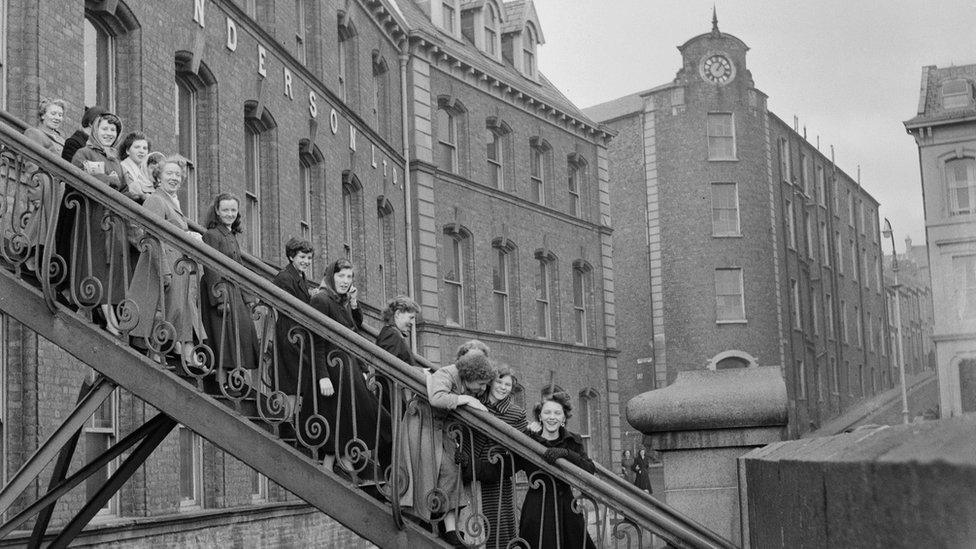
Workers leaving Tillie and Henderson's shirt factory in November 1955
Derry's factory girls were setting standards as the first female workforce in Ireland to be unionised and thought nothing of working 12-hour days while raising a family.
"I worked with a woman who had seven children and she would have been back at her work two or three weeks after having them" said Irene McCarron.
"We want people to recognise just how important the women's money was to the city at that time."
The names of Scott's, Rosemount, the City Factory, and Tillie and Henderson's were as familiar throughout the city as the women who worked in them.
For the young girls who entered the factory gates, it was a window into the adult world.
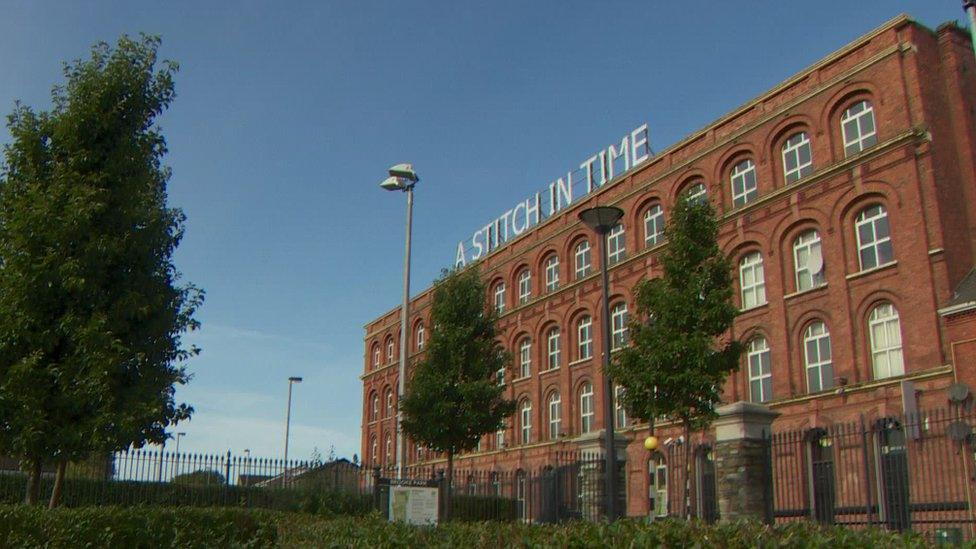
A light installation on the former Rosemount factory is to be removed
They would learn to sew some of the highest quality shirts in the world, but they also learned to jive, roll their hair, keep secrets, and, most importantly for them, form friendships that would last decades.
Mary White looks at home standing in what would have been the third floor parlour room of the Rosemount Factory.
It was here, on a windowsill overlooking Brooke Park, that Mary forged her friendships.
"This would have been off the main sewing room, it would have been all machines and the noise would have deafened you as soon as you walked in. I was terrified when I first heard it.
"The parlour, or the bathroom, is where they would have taught you to jive.
"If you were worried you could come in here and the older women would have gave you advice and there would have been another three or four people sitting up on the windowsill, having a smoke and telling the bars from the weekend."
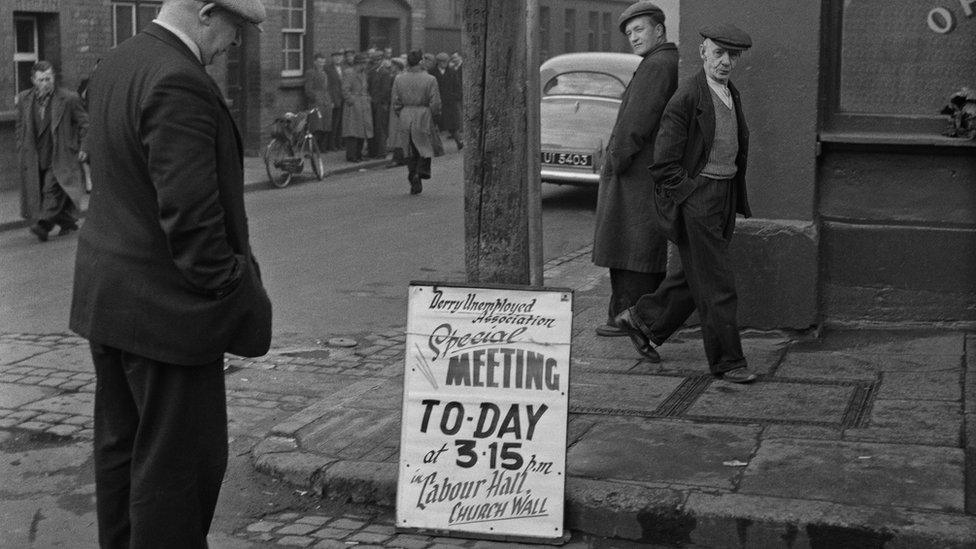
While the shirt factories were full of women working, male unemployment in Derry was high
For anyone not from Derry, 'the bars' is a collective term for gossip, craic or news.
It came about because of the way the women would bang the bars of their sewing machines when there was a titbit to be shared.
The industry began its gradual decline in the mid-1900s and by the 1970s the local industry was in serious trouble as business owners realised they could pay less for clothing to be stitched and shipped in from other growing economies.
Company and comradeship
The women found themselves out of work, but with a very specific skill set.
Many, like Mary White, put their resilience and entrepreneurial spirit to use in setting up their own dressmaking workshops.
Surrounded by singer sewing machines rescued from long-closed factories and swathes of fabric in her home workroom, it's clear that a change of career was never on the cards.
"I would go back and work in the factories tomorrow," said Mary.
"I miss the company and comradeship.
"If there was a woman who wasn't working fast enough, you would take some of her work and help her out to make sure that she made enough money that day for her family."
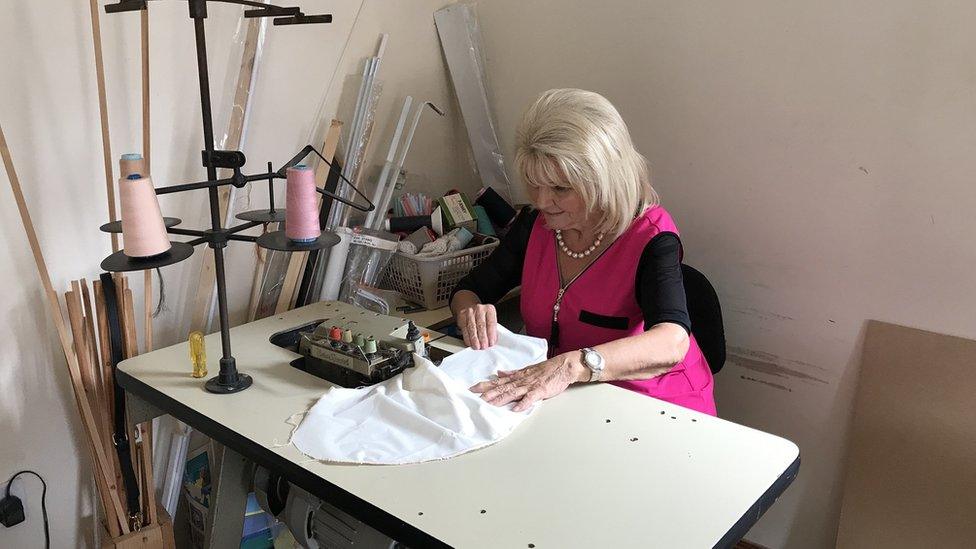
Mary White's career as a dressmaker continued outside Rosemount factory
Decades on from this time, most of the women are now in their 70s and 80s.
Their stories of how they worked through World Wars and decades of male unemployment, of the bonds they formed in the factories, are just memories.
With shirt factory buildings being demolished, external, the artwork "A Stitch In Time" being removed from Rosemount Factory and in the absence of a permanent sculpture, the women believe that their memories are the only thing left that commemorates that time.
Ms White said the women would be happy with "something simple" to commemorate their immense contribution to the city, but she doesn't believe it's something she will ever see.
"I don't think that I have much time left, none of us have. There's going to be no factory girls left."
Stories in Sound: Factory Girls will broadcast on BBC Radio Ulster and BBC Radio Foyle on Sunday 22 September at 12:30 BST.
- Published22 August 2019
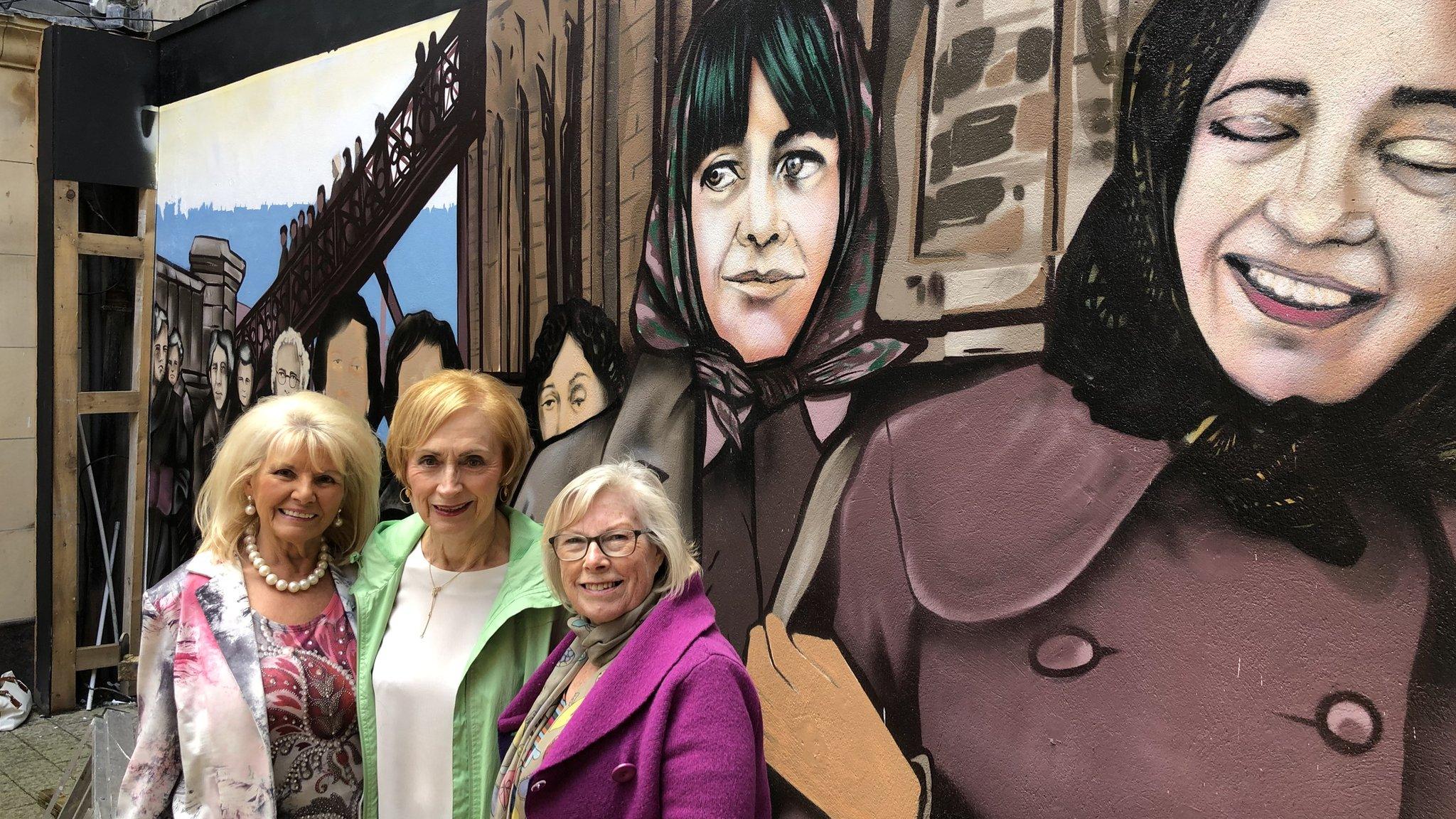
- Published8 March 2019
